Jesper leads Arla Foods in Asia as its Senior Vice-President, a region vital to Arla which is expected to quadruple in the next 5 years. Between 2012 – 2015, Jesper held the role of VP Marketing in Mengniu Dairy China at a time where Mengniu needed to rebuild consumer trust following the melamine scandal. This interview captures Jesper’s inner thoughts working as a foreigner introducing transformation, in a Chinese run organization.
You were given an award for Innovation Personality of China’s Influential Brands in 2013; can you tell me more about the award?
Innovation system will be influenced by the culture in which they are in. Typically, Western, more defined, management culture will have processes to govern the whole innovation – formats, templates and tools and a whole system. This innovation process will take place within the strategic framework of the company. It is very much big picture thinking.
The way I experienced it in a Chinese management culture is entirely different. The system was acting its way into its thinking. In the beginning of 2011, we had to enter quickly, into what was not necessarily new-to-the-world whitespace, with competition right at the heels. Innovation had to be very fast and agile, and so a bottom-up process was used.
I think when a Western system looks at the Chinese system it would typically say, very messy; effective but not very efficient. While the Chinese system will look at the Western one and would say it is extremely slow. A lot of powerpoint presentations and nothing happens. When I got into Mengniu, I had to get to work quickly, it was a matter of “thinking slowly but acting fast”.
So, trying to take the best of these two systems and put a process behind it. The outcome being something good and working in the market, I think that had something to do with this award. The award was an appreciation of the combining these two philosophies, these two systems.
Being a Scandinavian leader working in a Chinese company Mengniu, what was the biggest adaptation you have to make besides the innovation part?
In the first 2-3 months in Mengniu, I had to spend time to know people and network. With the exception of the then CEO, no one else in Mengniu spoke English. Relationship and trust are important in China. I did not want to act like an expat so as not to be seen as an outsider especially when a Chinese work culture is like being part of a family where work and personal lives are blurred. The Chinese, have an intensive way of working, where the work-life merged into after work hangouts, to build relationships & trusts, I had to be like them.
And what about the challenges you faced working in a Chinese company like Mengniu as a Scandinavian?
I had to take on some very open conflicts with people at my own level. It’s not something you want to do a lot of time in the Chinese context because the loss of face can really be quite detrimental to relationships. On the other hand, I needed to show, to the toughest peer in my group, that I was not afraid and also pushed if and when I needed to.
I also had to renew my team quite extensively in the first 12 – 18 months, which meant that a lot of people in my team had to leave the company. This was seen as something that was very difficult for a Chinese to do. For a Chinese leader, to some degree, if he had to fire somebody, he would be seen as a failure on his own. But keeping the pragmatic side and style (of a Scandinavian) and when you were really concerned about your team and you wanted to stand firm and show you were not a softie publicly. There were very few occasions I had to show such absolute toughness.
Were there any resistances when you try to bring changes to the organization? How did you overcome them?
Yes, there were resistances. The odds for me surviving in the role more than 6 months were low. After crossing the 6th month mark, I got down to work. I had actually done pre-work in the beginning to build alliances in the right places and also made sure that when I did things, there were upfront alignments. Because I grew up in P&G, which was a very process driven, matrix organization, where very few people actually make decisions by themselves, I was used to pre-alignments. It actually helped you in a context like this because instinctively you made sure that the stakeholders shared the same vision and backed you up. Whereas a lot of Chinese system, they were really like Emperors, each in their own silos, making decisions unilaterally. Both being a Scandinavian and being used to the process of pre-alignments, I was able to effectively align the systems as I moved forward.
The resistance came from all levels, including the top. But I was, in my tenure, blessed with a complete and unequivocal support from the CEO. She was always careful not to show misalignment or cast any doubt on what I was doing because that will fuel potentially an undermining of my power base. I remembered this instance, when I tried to separate the Marketing function from Sales, there were a lot of fights over people, budgets, decision rights, but I think that was normal. I didn’t think there was anything particularly culture against the culture. I saw that as normal in a transformation process in the company.
Were there any results to back up the push you made for the transformation to separate the Marketing from Sales, in the eyes of Mengniu. Do the people in Mengniu adopt the change because they were asked to adopt or was it because it was the right thing? Were they able to confirm that that was the right thing to do?
In any transformation, classically you will have 1/3 of the group being very interested about it. And another 1/3, neutral. And the last 1/3, working against it. When I looked back, first of all, the one thing I was very pleased about was the hires that I made into the top team back then. They are almost all of them still there and, they are still doing a good job. Of structural things, directions, of systems, processes, tools, and of the things we made in the portfolio, half of them survived. The half is still doing well and impacting the way the company is run in these areas. I wished there would be more, but that is a fair assessment.
I remember a launch into a new category that the company had been arguing over. The concept that I wanted on that particular launch didn’t have a lot of support. We had done our homework, a proper innovation process but on steroids. I remember while we were discussing the launch, the CEO, the Sales executive as well as the powerful distributor base didn’t want to do it. I had presented a completely different proposition, rather than a me-too, from the market leader which was the category maker. In the end, despite the initial push back, we went ahead and launched. And today, it is extremely successful and it’s basically the most successful launch the company has had, since the launch of premium milk. The turnover today (launched in May 2013) is 5-6 Bil RMB, 10% of the current company turnover. This was the biggest specific success that I can say I had a part in.
How has your experience in Mengniu shaped your opinion & thought on leadership styles in a Chinese firm?
A system like that will always gravitate back to what made it strong in the very first beginning i.e. moving extremely fast. Seeing issues, taking healthy risks and then moving forward. This is in the DNA of the company. The new CEO talked about bringing back more of the wolf culture (clever, pack hunters), a characteristic of Mengniu in its early days. That mentality is very much a part of the company’s DNA and you should not try and process too much of that. Instead, you should liberate it.
At the same time, I also said about “Thinking slowly and acting fast”, which I still hold on to that. And the company was very receptive to that. The good thing about the company like this was its top management, the Top 200 of them, they really act like owners. Even if they don’t like the medicine, but if they can see that the medicine is working and good for the company, because they think like owners, they will support it, even if they don’t like the process. But whereas in many other companies, you will see resistance because people are more thinking as managing their own turfs and power bases than acting as owners. This is what was making Mengniu, an agile company, in my opinion.
In decision-making, were the Chinese very different from Scandinavians?
The difference is that Scandinavian decision making is all consensus-driven. Whereas, in my experience, a Chinese way of making decision is participative and inclusive and you will have a team in front of you and the leader will sit at the end of the table. At the end of the meeting, the leader would summarize and after that, nobody questioned the decision, it is final. Whereas in a consensus culture, you can make a decision and then the decision may still be up for debate.
That the Chinese decision making process, was participative, partly surprised me. I had sat in a very big meeting room where you have the leader sitting in the centre and then the direct reports sitting in the inner circle and then the one-level down reports, in the outer circle. And depending on the scope of the meeting, people would talk and everybody would have a chance to participate and that could go on for a long time. I attribute this participative style of meetings to the leadership of my CEO, who grew up in the Coke system, I don’t think it was like this before she joined.
The direction was not necessarily reserved for that single topic or the scope/decision and you sit there for hours. In the Chinese culture, you have to sort of “work hard”. It had to be a hard, long drawn out process then you can pound your chest afterwards and say well, we worked so hard and we get on well, we worked until 2 o’clock in the morning! Whereas in the Scandinavian culture, time is much scarcer and even though Scandinavian culture is also a meeting culture, nobody counts the physical hours of meeting as part of the success. In that sense, the Chinese tends to be inefficient but effective because things really get done. Whereas in the Scandinavian culture, may be more efficient but not as effective.
How would you have done this differently now that you have this experience? If you were to start say, from Day 1 of you joining Mengniu?
I’d have done a lot of things differently. I think I probably would have been more conscious of all the time that I put in and more demanding on time efficiency at the beginning. Because obviously those 3 years, from a family stand point were tough. I don’t think my family saw much of me. And of course, it was expected to be like that when you were in an executive position, you made that choice but it certainly was not a normal work life. It needn’t be this tough if I had been more demanding on time efficiency. And I don’t think I’d have been seen any less for that. And that could have given me, more time with my family.





